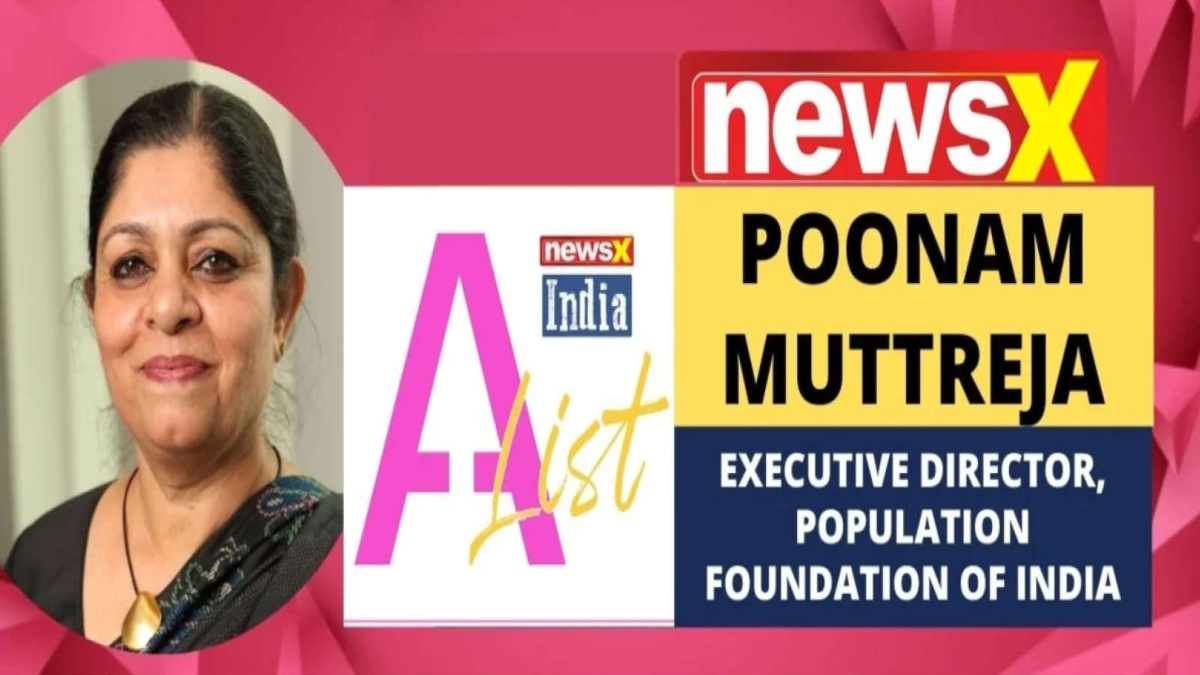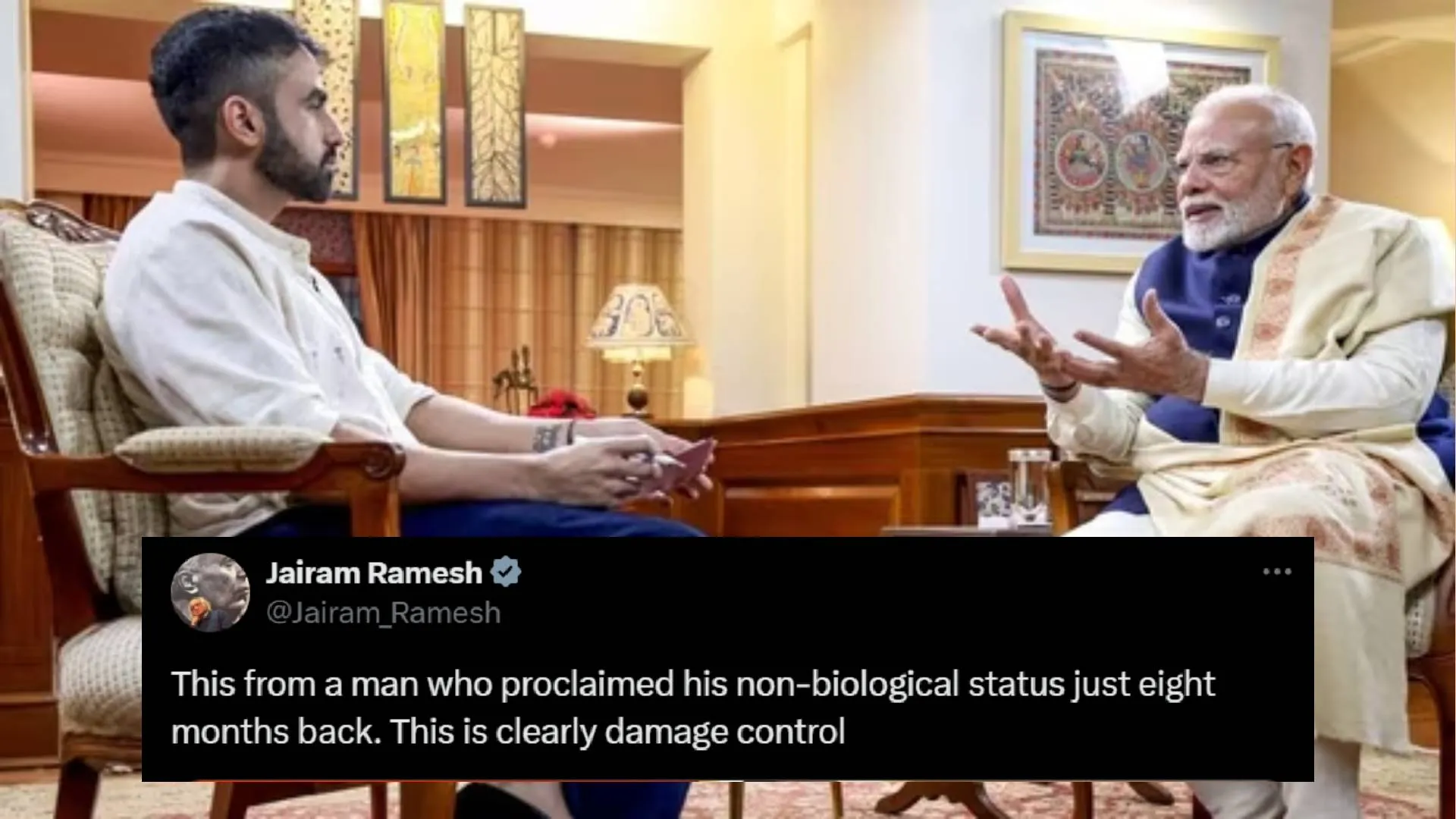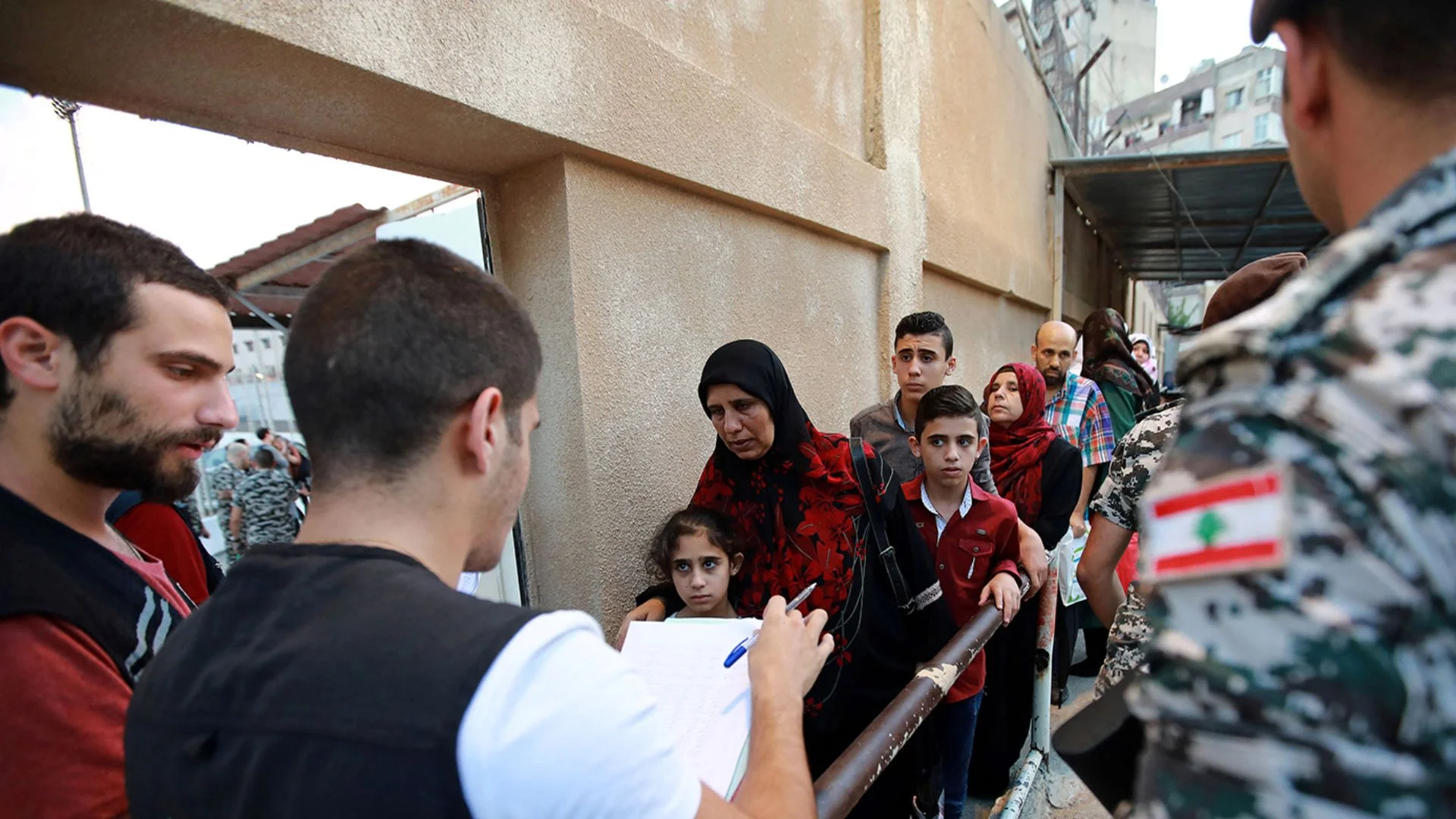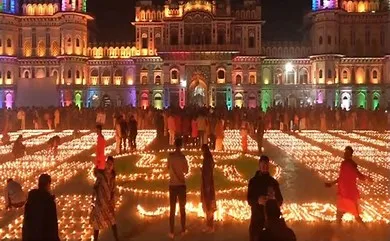Covid-19 is one the biggest challenges that India has faced in the past two years. From big cities to rural areas, the pandemic has left everyone helpless. Amid these difficult times, organisations like the Population Foundation of India (PFI) have been helping to spread awareness on various key healthcare issues. NewsX recently interacted with PFI’s Executive Director Poonam Muttreja as part of its special series NewsX India A-List, wherein she spoke about PF I’s efforts towards community building and sensitisation in detail.
Speaking about PFI’s efforts towards spreading awareness on key healthcare issues, especially family planning, in the rural sector amid the Covid-19 pandemic, Poonam Muttreja said, “PFI took the responsibility of spreading the Covid-related information, as the government asked us to help develop awareness content when India went into the lockdown. We simultaneously spread the awareness about the family planning and reproductive sexual health issues.”
“We found that reproductive health services were stopped because of the onslaught of the pandemic as the healthcare workers were engaged with fighting the virus on the frontlines. We did a quick field survey and got back to the Government of India, and then we wrote a letter to the Prime Minister, and the Health Minister explaining what was happening on the ground,” Muttreja added.
“Women weren’t getting services during the deliveries, family planning services had stopped too. We used the data and the health ministry took one day to write a letter to every health secretary in every state to start at least minimal services. The ministry emphasized over the issues like family planning, and put them under essential health services.”
Speaking about the modus-operandi of PFI, Muttreja said, “We do policy work and give feedback to the government in a constructive way with evidence. We persuade them to change policies if needed.”
“We spread the awareness about the methods of contraception. We send the material to states across the country through SMS, WhatsApp messages. For instance, in states like Bihar, where we do a lot of work. We requested the government to distribute condoms to migrants who were arriving in large numbers. We have noticed that the minute migrants go for a holiday during Chatt, Diwali, or any other festivity, that’s when pregnancies happen,” she added.
“We supported adolescent girls. In Bihar, we set up a bank of sanitary pads. Usually, schools distribute sanitary pads. But, with the closure of schools and the primary healthcare centers, the distribution of these goods was hampered. We made sure, that amid the pandemic, things reached the right people at the right time,”
PFI was helping the government in using digital media across the country to spread the awareness about the issues like Covid-protocols, violence against women, and the need for preventing pregnancies. Pandemic had made things difficult.
“It was excruciating because everything was shut,” Muttreja said.
“We made a very encouraging film about the frontline health workers, which millions of people saw. Globally and in India, it went viral. People like Smriti Irani, Minister for Women and Child Development, tweeted about it,” she added.
When asked about how the foundation has been driving attention towards the need for vaccination drive in rural areas, Muttreja said, “We recognise that there is vaccine hesitancy and that people don’t know the positive and preventive aspects of the coronavirus vaccine. We developed behavior-change content and we are using it through our state offices across three states. We have to educate people,”
“Right now, there is a huge need to educate people about the importance of the vaccination and the myths and misconceptions revolving around it,” she added.
“We are in touch with a large number of NGOs, which have set up groups. These groups are going to fieldwork and spread the information about the vacciniton and when the vaccines are available,” Muttreja said while speaking about the importance of vaccine awareness.
Moreover, PFI is translating material about vaccination in Hindi. For instance, the CoWin app is published in English, the language which is not widely spoken as such in India.
“We are translating the app and putting it out in Hindi,” Muttreja said.
Talking about her journey, she said, “Since I was in school, I got sensitised to the fact that, we the middle class people, are immune to poverty and suffering around us. We just think that it happens in the villages. Once, I was exposed through the domestic science lab worker to a lady who earned Rs. 50. She was a widow and her children couldn’t go to school. I gave her my pocket money so that her five kids could go to school. You have no idea what pleasure it gave me and I have never looked back since.”
“I respond to the needs of the most marginalised communities in the institutions I have set up, and the movements I have been involved with. What struck me most was the system of untouchability. I started by designing and working with leather workers on developing products. In villages, I discovered that women had no livelihoods or agency so I started working on women empowerment and I set up an NGO called Dastakaar, which works with artisans, and we brought women in a big way,” she said.
“My thing is to bring people to work with and Dastakaar had a great team of people. I’m still associated with the NGO. When Indira Gandhi was assassinated and there were riots in Delhi against the Sikh community, I jumped in and we started an organisation called Nagre. So, basically, you have to respond to what is the crisis in the community and what the real issues are,” Poonam Muttreja signed off.























